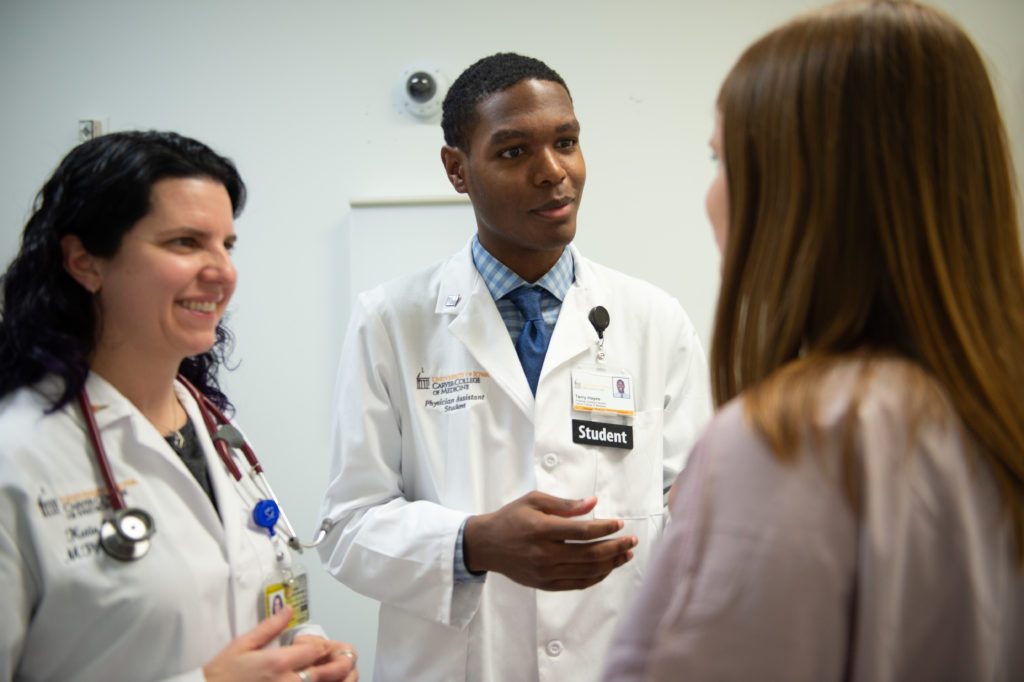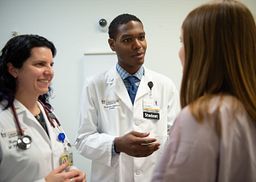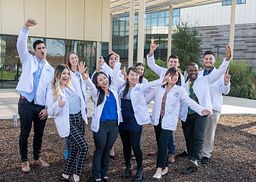PAEA 50th Anniversary: Fast Facts About the University of Iowa PA Program

PAEA 50th Anniversary: Fast Facts About the University of Iowa PA Program
Courtesy of David Asprey, PhD, PA-C, and Marc Doobay, MPAS, PA-C
Program Name & Location: University of Iowa Roy J. and Lucille A. Carver College of Medicine Department of Physician Assistant Studies & Services in Iowa City, Iowa
Program mission, vision & values: Our mission is to recruit exemplary individuals from diverse backgrounds and educate them to provide high quality, compassionate health care as physician assistants. We aim to inspire and educate world class health care providers and scientists for the people of Iowa and our global community.
Our innovative curriculum is designed to have the PA students complete their didactic curriculum alongside medical students. The curriculum is woven into a matrix of courses that prepare students with the practical skills they need to become lifelong learners.
Our graduates act in a professional manner, practice strong interpersonal and communication skills, teach and counsel effectively, organize and integrate appropriate patient data, and are sensitive to the effects of illness on the patient and family.
The University of Iowa Carver College of Medicine has a strong commitment to justice, diversity, equity, and inclusion, dating back to 1870, when it became the first public institution in the country to admit women and men on an equal basis, and 1907, when Edward A. Carter became the first Black graduate of the College of Medicine. More than 150 years later, the College continues that tradition with the philosophy that justice, diversity, equity, and inclusion are central to our institution’s research, education, and clinical care goals.
What year did your program welcome its first class of students? The University of Iowa PA Program matriculated its first cohort in 1972.
What are the key milestones in your program’s history?
- 1972: The PA program is established, awarding a BS in medicine. Ten students are enrolled in the first cohort in August.
- 1975: The program receives accreditation in March by the Committee on Allied Health Education and Accreditation (CAHEA).
- 1987: The University of Iowa Graduate College added a combined MS degree in preventive medicine or exercise science to the program.
- 1992: The Iowa Board of Regents approves the full conversion of the baccalaureate program to a graduate-level program.
- 2012: The Department of Physician Assistant Studies & Services is officially created in the Carver College of Medicine.
- 2014: The program adopts the New Horizons curriculum model, an innovative approach that prepares students for team-based practice by having PA and MD students complete didactic coursework side by side and giving students earlier exposure to clinical experiences.
- 2019: The University of Iowa is ranked a #1 PA program nationally (tied with Duke University) in the current listing of “Best Graduate Schools” by U.S. News & World Report.
- 2021: The graduating class achieves a 100% pass rate on the Physician Assistant National Certifying Examination (PANCE) for the 26th consecutive year.
- 2022: The program secures a $2 million donation to establish the position of Denis R. Oliver Endowed Chair and celebrates its 50th anniversary.
How many students have graduated from your program to date? The University of Iowa PA program has graduated 1,067 PAs and counting.
How has your program impacted the community it serves? Our program emphasizes training our PA learners to practice in underserved or rural areas as a means of addressing our nation’s shortage of access to health care in these settings. For the past decade, 100% of the students in our program’s graduating classes have been placed in clinical rotation sites in underserved and/or rural communities with a hope that this will foster an interest to work in these areas.
In addition, our students are invited to give presentations to local community groups, advocate for the profession with state or federal lawmakers, volunteer medical services through our local free medical clinic, or represent the PA profession in other volunteer roles that support our community.
We work to instill in our students that service is central to the community and can reveal a larger purpose for their training.
Are there any prominent PAs who graduated from your program? If so, who, and what did they accomplish?
- David Asprey: APAP (PAEA) President 2001-2002
- Anthony Brenneman: APAP (PAEA) President 2012; ARC-PA President 2022-2024
- Libby Coyte: AAPA President 1997-1998
- Richard Dehn: Physician Assistant History Society President 2007-2008
- Ed Friedmann: AAPA President 2001-2002
- Patrick Knott: APAP (PAEA) President 2004-2005
- Jim Van Rhee: ARC-PA President 2012-2013



